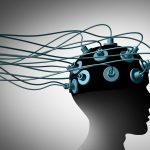Transcranial magnetic stimulation has worked for a lot of treatment-resistant patients. But good luck getting maintenance treatment on the MBS.
Patients seeking repetitive transcranial magnetic stimulation (rTMS) for treatment-resistant depression are suffering from the narrow MBS criteria, say experts.
Several high-profile psychiatrists argue the restrictions leave patients facing costs of $1000 per day, and appear to be a cost-saving measure rather than a clinically justified one. In contrast, electroconvulsive therapy is more expensive and has no ceiling on treatments.
“Nowhere else in medicine have I seen it happen that you can only get funding for treatment once,” said Professor Paul Fitzgerald, director of the School of Medicine and Psychology at ANU and cofounder of TMS Clinics Australia.
Item numbers 14216 and 14217 (for an initial treatment course), and 14219 and 14220 (for a second/final course) were first introduced in late 2021.
Nine conditions apply, the first three of which refer to age, diagnosis and treatment quantity:
- Patients must be at least 18 years of age;
- Patients must have been diagnosed with major depressive disorder, and have failed to respond satisfactorily to at least two different classes of antidepressants, provided at recommended doses for recommended periods and also, where indicated, patients must have participated and achieved insufficient benefit from psychotherapy; and,
- The initial course is limited to 35 treatments.
The fourth condition applies to maintenance rTMS:
- Provision of maintenance TMS is not supported.
The other five conditions, according to father and son psychiatry duo, Professor Saxby Pridmore and Dr William Pridmore, “appear to arise predominantly from cost-effectiveness and equity issues”.
- Patients who have previously received TMS are excluded from rebated treatment;
- A lifetime maximum of two [rebated] treatment courses may be provided;
- After 50 treatments, no further [rebated] treatments are available to the patient;
- If a second/final treatment course is allowed, it is limited to 15 [rebated] treatments; and,
- If a second/final treatment course is allowed, it cannot commence until four months have transpired since the completion of the first [rebated] course.
“While evidence supports some listed rules/conditions, others lack clinical justification and deserve to be reconsidered,” they wrote in Australasian Psychiatry.
Those lacking clinical justification were the ban on patients who had previously used the treatment, the 50-session maximum, the four-month delay between treatments and the cap of 15 sessions for the second or final course, they said.
These restrictions were “profoundly important” to patients who had success with TMS treatment but subsequently relapsed, they said.
“TMS is only available to those who have failed to respond to psychotherapy and antidepressant medication; thus, there is little likelihood of future relief via these treatments.
“Where TMS treatment is no longer available (in spite of previously demonstrated efficacy), many will be forced to progress to electroconvulsive therapy (ECT). Paradoxically, there is no limit to the number of ECT which can be provided—even though ECT is more costly than TMS and less attractive to patients,” wrote the Pridmores.
“The purpose of some [of the rules] appears to be the containment of costs with little regard to clinical need. For example, an embargo against those who have received TMS treatment in the past and the lifetime total limit of 50 treatments have no clinical justification and a reconsideration … is indicated.”
Professor Fitzgerald was part of the push to get rTMS approved for MBS subsidisation.
“The MBS approval has done some good, there’s no question,” Professor Fitzgerald told TMR. “There is now access for some patients who otherwise wouldn’t be able to get rTMS.”
But, he said, some of the criteria for rebating were problematic.
“We are creating a population of patients who had access to rebated treatment and have done very well on it, but who then discover that they are not eligible for maintenance treatment,” he said.
“The cost of getting treatment in a private hospital – $900 to $1000 per day – has not changed.
“So we have patients who suddenly can’t afford to continue the only treatment that works for them.”
The MBS justified the exclusion of maintenance treatment on the basis of “the perception of insufficient evidence”, according to the Pridmores.
“We concede the evidence from placebo-controlled trials is not abundant,” they wrote. “There is some recent supportive literature available, and further evidence is being assembled.”
Professor Colleen Loo from the Black Dog Institute, and another early advocate for TMS, said the problem was that maintenance treatment studies were hard to run.
“If you receive five days of treatment a week for six weeks and got better, why would you take part in a six-month double-blinded trial where you might receive placebo?” she told TMR. “Especially as it involves travel to and from a treatment centre.
“Also once you’ve had six weeks in the trial, you’re going to know whether you’re receiving TMS or a placebo treatment, so in reality it’s not blinded.
“We understand the funders’ need for evidence, but we also hope that with real-world evidence – good, qualitative data about what is happening – we can go back to Medicare.
“We are grateful for the item numbers – they are better than nothing. But it would be nice if they were mapped on better to the needs of the patients.”
Professor Fitzgerald said the exclusion of maintenance treatment and more than 50 doses were creating a unique population of patients who were being penalised.
“You can get a coronary stent put in as many times as you like with very little evidence backing it. You can get ECT every year for your entire life with no evidence supporting that.
“This is not an equitable funding decision. It’s an aberration. The decision had far more to do with financial constraints than anything else.”
A spokesperson for the RANZCP said the college was currently updating its professional practice guidelines on rTMS, slated for publication later this year.
President of the college, Associate Professor Vinay Lakra, told TMR that:
“The changes have made rTMS more accessible, available and affordable within the indications that it’s been approved for.
“Looking ahead, maintenance and retreatment are areas worth looking at.
“There is emerging evidence that maintenance rTMS strategies can be used to prevent relapse, but further research is required to define the most effective and efficient strategies.
“There is relatively limited literature to date that has explored the reintroduction of rTMS in patients experiencing a relapse, but this literature suggests that patients who have initially responded to rTMS are highly likely to do so with subsequent treatment.”
In other news about TMS, a new perspective article in the Harvard Review of Psychiatry said multiple sessions in one day were “are well tolerated and not associated with serious adverse effects”.
“Importantly, the antidepressant efficacy of accelerated rTMS appears comparable to conventional, once daily rTMS protocols,” the authors concluded.
“Whether accelerated rTMS induces antidepressant effects more quickly remains uncertain. On present evidence, treatment protocols incorporating high pulse dose and multiple treatments per day show promise and improved efficacy.”





